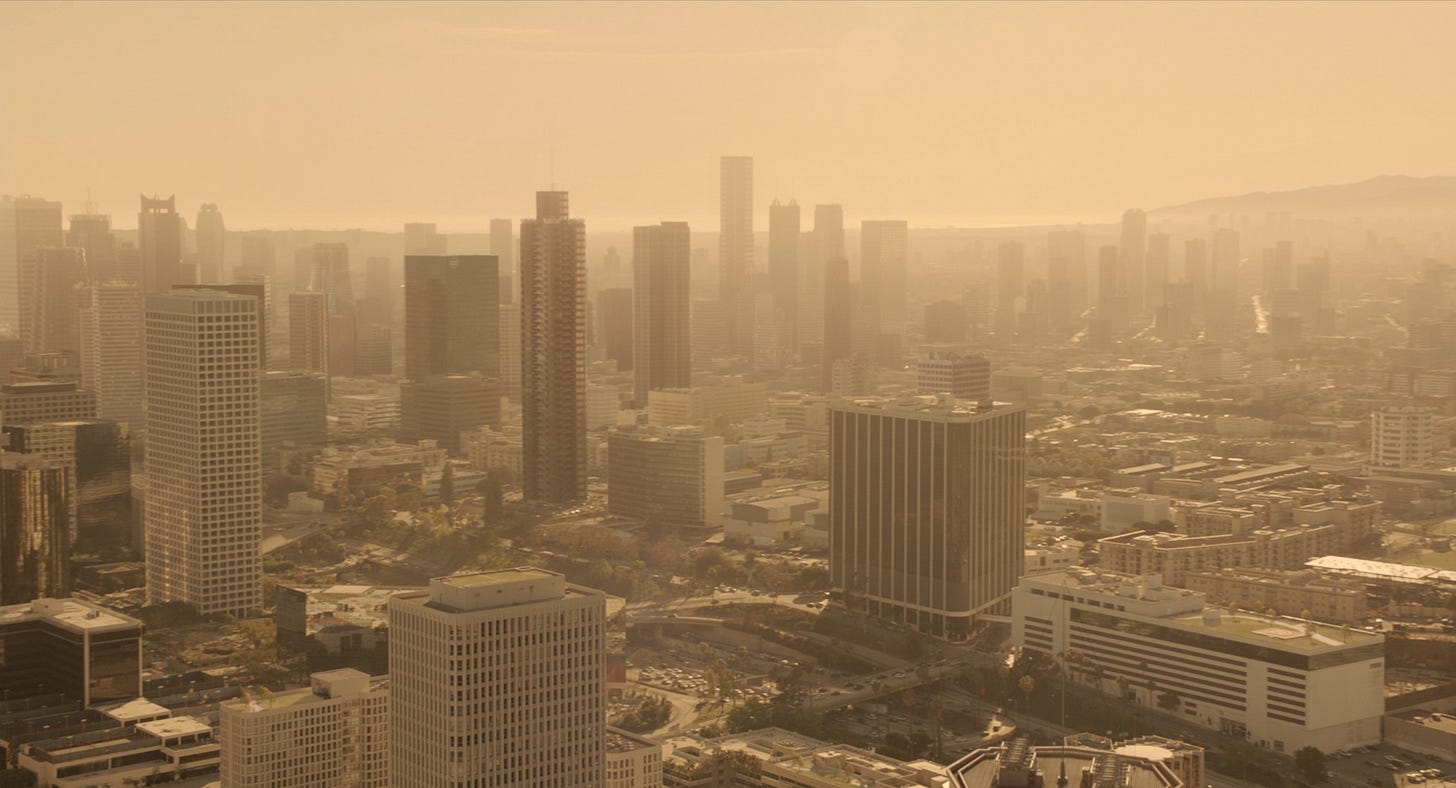In times of crisis, a new kind of creative thinking matters
Resources and articles on the California wildfires
Personally, as someone who has dreamed of moving to Los Angeles, the fires are not just heartbreaking but a terrifying reality that the city my heart has long been connected to is not invincible.
This swift, viscous act of climate change not only symbolizes the state of denial that our country has been in as temperatures rise but it also puts hope at risk.
Los Angeles has been home to the West Coast American dream, the wholesome hope of arriving in Tinseltown and making it. But now so much of it is at risk. Historical structures, gone. Rich history, vulnerable. Cultural institutions, threatened. The dream replaced with a new sense of tenuousness. Lives are changed forever in a way only a disaster movie could anticipate, in a cruel twist of irony.
During disasters such as this, people mobilize to serve the collective in ways that are beautiful and affirming of our humanity. But it begs the bittersweet question: why can’t we shape society to make such effort, support, selflessness, and mutual aid available all the time?
As the paparazzi snap celebs and their mansions—whether fled, spared, or destroyed by the Palisades fire—it’s overlooked that these “affluent” areas are home to more than just the A-list (who are more likely than not privileged with means and/or second homes.) The working class also co-exist with them and have sustained just as much, if not more, losses. And on the other side of the city, the historically Black and working class neighborhood of Altadena has been hit hard by the Eaton fire. Another reality is that disabled people are often left out of both the conversation and consideration in natural disasters.
In times of collective crisis, I believe in seeking facts, knowledge, and taking action over the passive act of “thoughts and prayers”. While also acknowledging the complexities of trauma and how it affects each of us uniquely based on our lived experiences. Sometimes mobilizing looks different than how we’re told it should look like, and that’s okay too.
Because sometimes the most creative thing we can do is change how we think, come to together to make sustained changes, and lift others up whenever we can—not just when it’s demanded of us. To ultimately understand other’s experiences outside of our own.
Here are some resources and articles that expand on some of the points above: *Content warning—some links below may contain photos or details that may be upsetting to some readers.
In One of L.A.’s Richest ZIP Codes, Food Service Workers Also Lost Their Homes
↑ In addition to pricey mansions, the homes of working-class people were also lost, including a mobile home park on Pacific Coast Highway.
Environmental Justice Lessons from California Wildfires
↑ As climate change gives rise to an increasing complexity of threats from natural disasters, there is a rapidly growing need for environmental justice in our emergency response systems. In this paper, I researched the inequitable impacts of California wildfires on individuals with disabilities.
A List of Resources and How to Support Artists and Art Workers Affected by the Los Angeles Wildfires
↑ As the city looks to rebuild, several mutual aid programs, fundraising accounts, and supply-donation sites have surfaced to assist the Los Angeles art world. Below is an ongoing list.
↑ With more than 12,000+ structures damaged or destroyed to date, the Los Angeles Conservancy is working to identify historic places impacted by the Los Angeles County fires.
Center for Climate and Energy Solutions on Wildfires and Climate Change
↑ Climate change has been a key factor in increasing the risk and extent of wildfires in the Western United States. Wildfire risk depends on a number of factors, including temperature, soil moisture, and the presence of trees, shrubs, and other potential fuel. All these factors have strong direct or indirect ties to climate variability and climate change.
Wildfires Have a Lasting Psychological Impact on Communities
↑ “Natural disasters have always been part of human history, but the frequency and intensity of natural disasters have been accelerated by climate change, and in the wake of that, we’re finding exaggerated mental health symptoms,” says Jyoti Mishra, PhD ’08, MBA ’22, associate professor in the Department of Psychiatry at UC San Diego School of Medicine.
Air quality advice via @LuckyTran
Illegal price gouging as reported by @Diet_Prada
An essay on Los Angeles by
If you have any additional resources, please share them in the comments below.
Stay safe out there,










